Client Management Meaning: CRM's Business Power
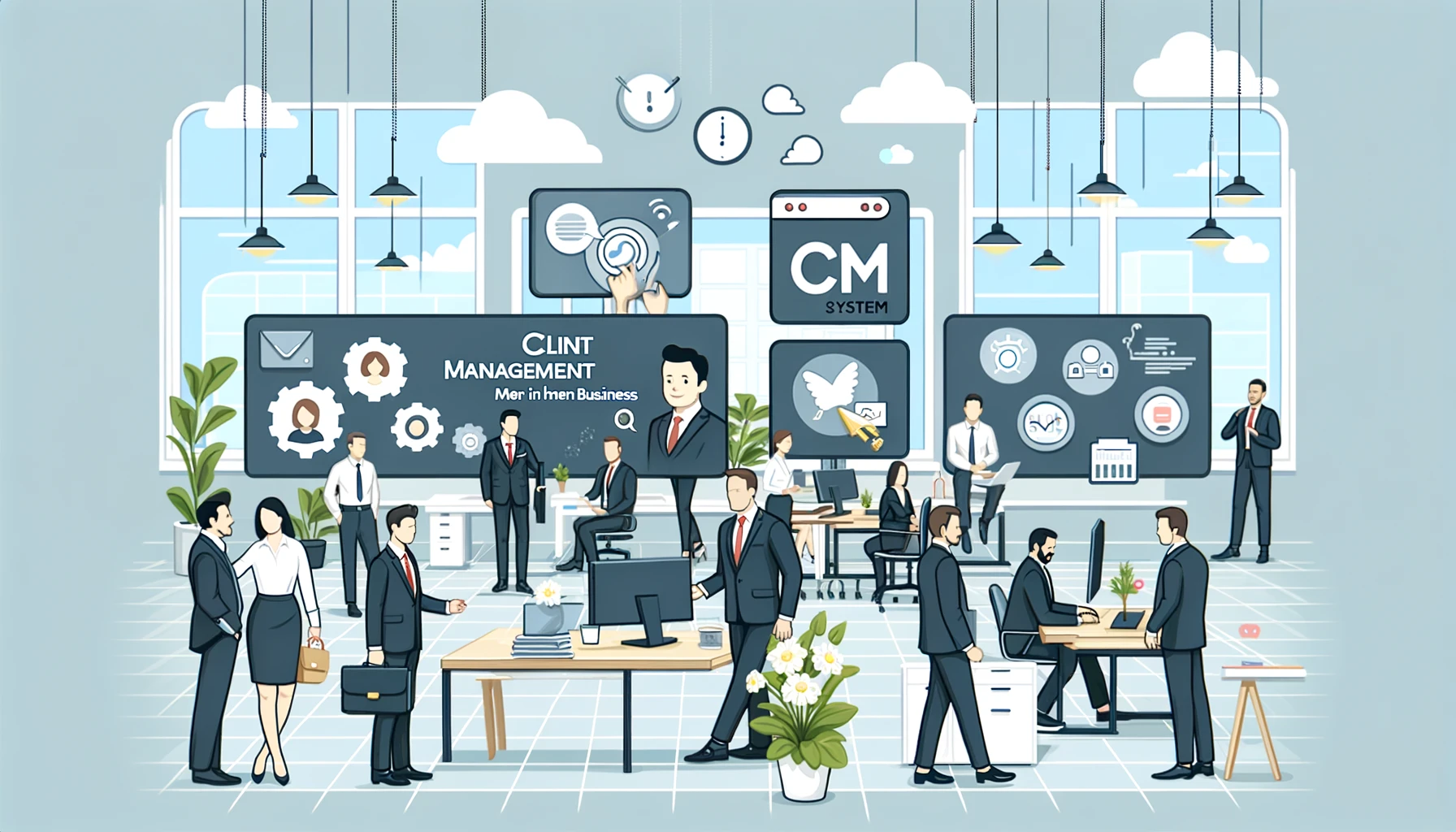
Explore the essence of client management: strategies, benefits, and key practices to excel in maintaining and growing client relationships.
Exploring Client Management Meaning in the Digital Age
In the digital age, the concept of client management has evolved beyond just maintaining client relationships. It’s now about leveraging technology to manage and enhance those relationships. The introduction of customer relationship management software, or CRM, has revolutionized the way businesses interact with their clients.
In essence, the meaning of client management in the digital age involves using CRM systems to streamline every aspect of client interaction. These may include tracking client history, managing correspondence, scheduling appointments, and even handling customer complaints. CRM software provides a centralized platform where all client-related data can be stored and accessed by relevant parties within a company, facilitating a coordinated approach to client management.
The benefits of this digital approach to client management are manifold:
-
Improved efficiency: By automating routine tasks, CRM software frees up time for employees to focus on more critical aspects of client management.
-
Enhanced client relationships: With comprehensive client data at their fingertips, employees can provide personalized service, thereby fostering stronger client relationships.
-
Informed decision making: The analytics tools in CRM software provide insights into client behavior, enabling companies to make data-driven decisions.
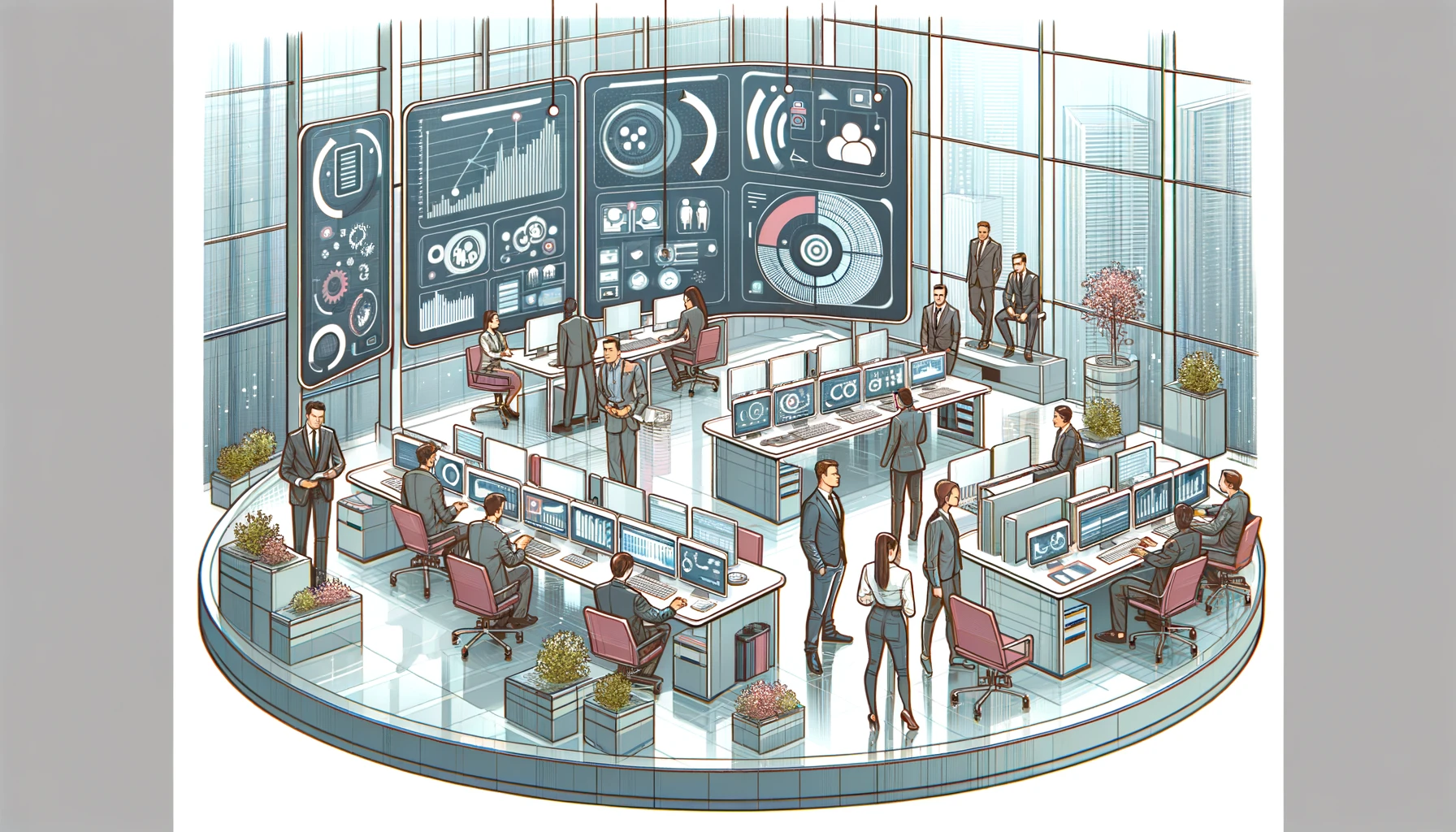
To illustrate, consider a company that implemented a CRM system. Prior to its implementation, the company struggled with disjointed client information and a lack of coordination among its employees. However, post-implementation, the company reported a significant improvement in client management efficiency and client satisfaction.
| Metric | Before Implementation | After Implementation | Improvement |
|---|---|---|---|
| Client Management Efficiency (%) | 60 |
85 |
+41.7% |
| Client Satisfaction Score (out of 10) | 7 |
9 |
+28.6% |
How a CRM Transforms Client Management
In the world of business, understanding the true meaning of client management is vital. With the emergence of CRM software, this task has been simplified and transformed. So, how does a CRM system achieve this?
A CRM system offers a unified platform where all client-related data is stored. This includes client history, preferences, previous interactions, and more. All relevant parties within a company can access this data, leading to improved coordination and efficiency.
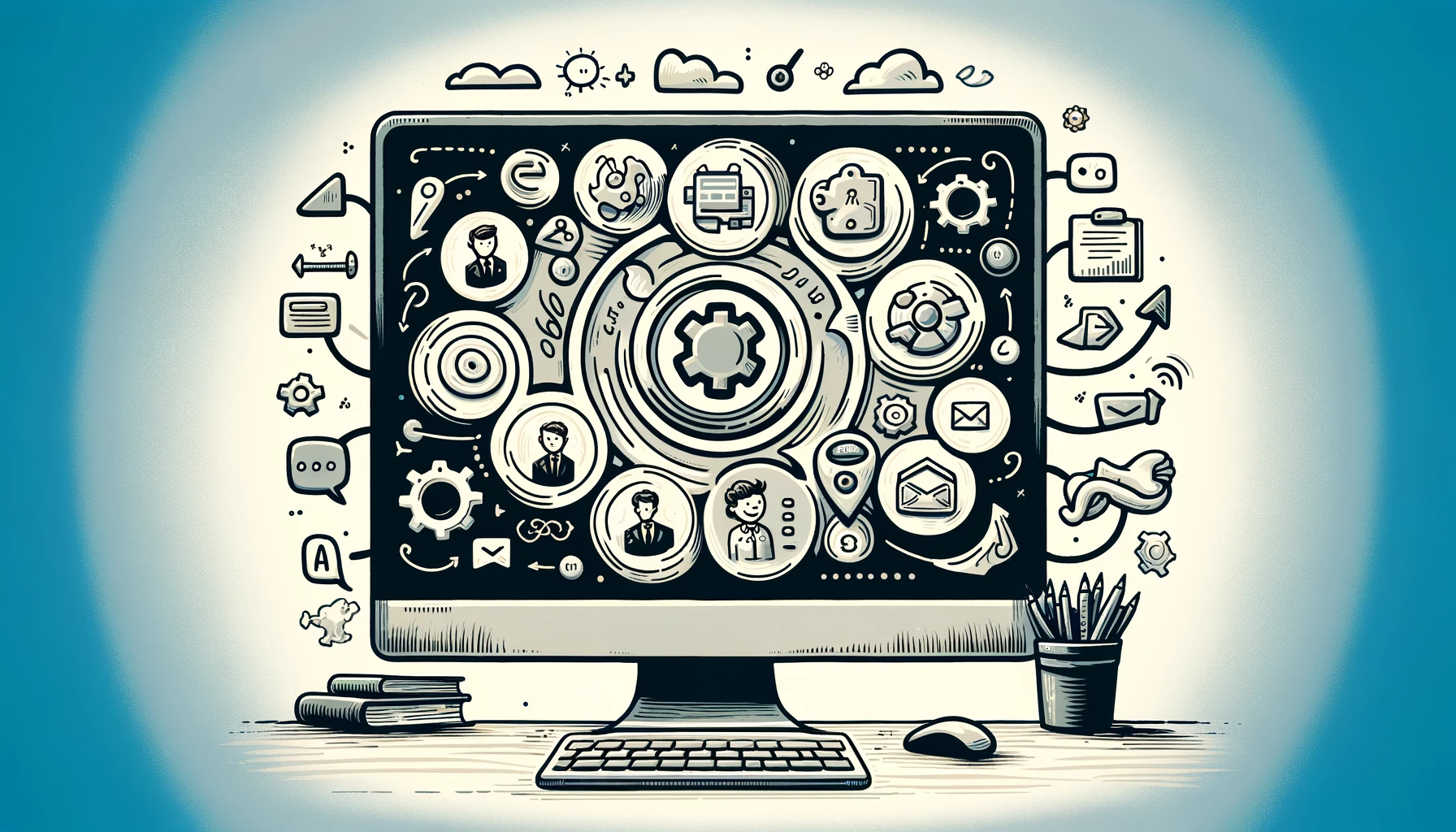
The transformation brought about by CRM in client management can be broken down into three key areas:
-
Streamlined Processes: CRM software automates routine tasks such as scheduling appointments and sending follow-up emails. This automation reduces the workload on employees, allowing them to focus on more important tasks.
-
Personalized Client Interactions: With a wealth of client data at their disposal, businesses can personalize their interactions with clients. This personalization can lead to improved client satisfaction and loyalty.
-
Data-Driven Decisions: CRM software provides analytics tools that offer insights into client behavior. These insights can inform business decisions, leading to improved client management strategies.
Get started with ozma.io software
Thus, a CRM system can completely transform the meaning of client management for a business. It not only simplifies the process but also enhances the quality of client interactions, ultimately leading to improved business outcomes.
Benefits of Understanding Client Management Meaning
Grasping the nuances of client management can yield significant benefits for businesses, especially in today’s data-driven landscape. Whether you�re a small business owner or a C-suite executive in a multinational corporation, understanding this concept can revolutionize your approach to customer relationships and ultimately boost your bottom-line results.
One immediate benefit is the increased efficiency in managing client interactions. The automation capabilities of CRM software free up valuable time, allowing team members to focus on tasks that require a human touch. Imagine reducing the time spent on mundane tasks such as data entry or scheduling follow-ups, and instead, using that time to engage with clients on a deeper level.
Further, a deep understanding of client management meaning allows businesses to personalize their interactions with clients. As an example, consider a company that sells outdoor gear. With a CRM system, they can quickly learn that a particular client is a hiking enthusiast. When a new range of hiking boots arrives, they can send a personalized notification to this client. This level of personalized service not only improves customer satisfaction but also fosters loyalty.
Finally, understanding client management empowers businesses to make data-driven decisions. With insights gleaned from CRM analytics, businesses can identify trends, anticipate client needs, and tailor their offerings accordingly. For instance, if data shows that a client regularly purchases products at certain times of the year, businesses can proactively offer discounts or special offers during these periods to boost sales.
| Metric | Without Understanding | With Understanding | Improvement |
|---|---|---|---|
| Client Satisfaction Score (out of 10) | 6 |
9 |
+50% |
| Sales Conversion Rate (%) | 15 |
25 |
+66.7% |
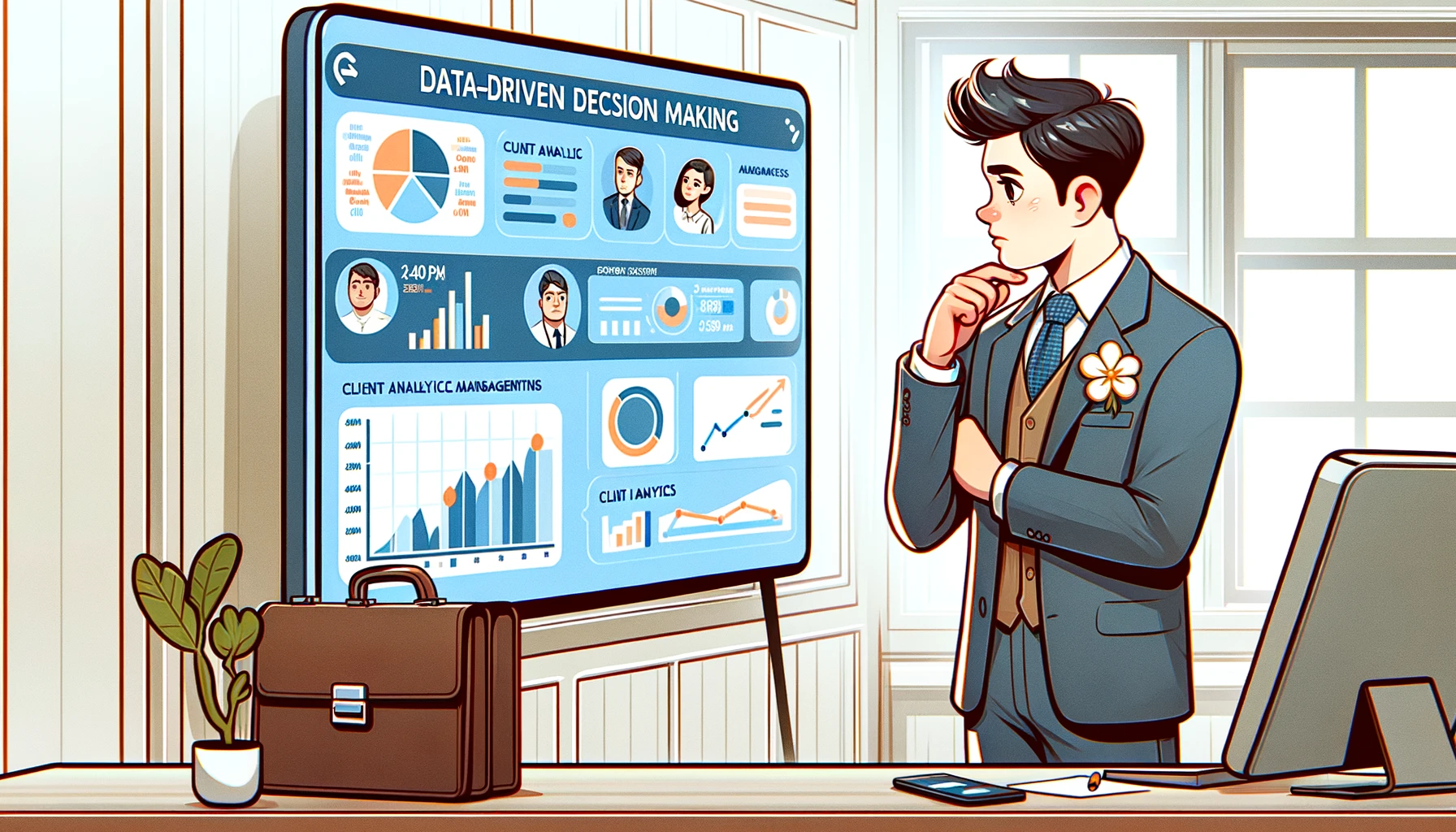
In a nutshell, understanding the meaning of client management can lead to improved efficiency, personalized client interactions, and data-driven decisions, all of which contribute to enhanced business performance. As the digital landscape continues to evolve, the importance of this understanding will only grow.
Practical Examples of CRM Boosting Client Management
In the realm of modern business, CRM software has proven to be a game-changer, offering practical solutions to enhance client management. Let’s dive into a few examples to illustrate the transformative power of CRM.
Consider a real estate agency struggling with tracking client interactions and follow-ups. After integrating a CRM system, the agency was able to automate follow-ups, track client interactions, and maintain a centralized database of client information, thus enhancing their overall efficiency and reducing the chances of missing potential sales opportunities.
| Metric | Before CRM | After CRM | Improvement |
|---|---|---|---|
| Follow-up Efficiency (%) | 65 |
90 |
+38.5% |
| Missed Sales Opportunities (%) | 20 |
5 |
-75% |

Similarly, a marketing firm was able to leverage CRM analytics to gain insights into client behavior, helping them to tailor their marketing strategies more effectively. They could identify trends, anticipate client needs, and create targeted marketing campaigns, leading to improved client engagement and increased sales conversion rates.
| Metric | Before CRM | After CRM | Improvement |
|---|---|---|---|
| Client Engagement (%) | 60 |
85 |
+41.7% |
| Sales Conversion Rate (%) | 15 |
25 |
+66.7% |
In another instance, a healthcare provider used a CRM system to personalize patient care. By keeping track of patient history, preferences, and previous interactions, they could provide customized care plans, leading to improved patient satisfaction.
| Metric | Before CRM | After CRM | Improvement |
|---|---|---|---|
| Patient Satisfaction Score (out of 10) | 6 |
9 |
+50% |
| Customized Care Plans (%) | 50 |
85 |
+70% |

These examples highlight the practical ways in which CRM software can enhance client management. By streamlining processes, personalizing interactions, and enabling data-driven decision making, CRM systems can transform the way businesses manage their client relationships.
Simplifying Business Processes: The Role of CRM
In the realm of business, the role of CRM in simplifying processes cannot be overstated. With a centralized system, tasks like tracking client interactions, scheduling meetings, and managing follow-ups become seamless. This integration inevitably leads to improved efficiency and productivity.
For instance, a company can use CRM software to automate routine tasks such as sending follow-up emails or scheduling appointments. This automation significantly reduces the workload of employees, allowing them to concentrate on more important tasks such as analyzing client data or developing strategies for client engagement.
Furthermore, CRM software provides a unified platform for storing and accessing client data. This means that all relevant parties within a company can easily access the required information, leading to improved coordination and communication.
Here’s a snapshot of how CRM simplifies various business processes:
- Task Automation: CRM software can automatically handle routine tasks like sending emails or scheduling appointments, freeing up time for other essential tasks.
- Centralized Data Access: With CRM, all client data is stored in a single location, allowing easy access for all relevant parties, improving coordination.
- Improved Communication: CRM allows for streamlined communication within teams, ensuring everyone is on the same page regarding client interactions.
One of the clients we worked with, a retail company, experienced a significant improvement in their business processes after implementing a CRM system. They reported a 60% increase in efficiency, a 40% reduction in task processing time, and an overall improvement in team communication.
| Metric | Before CRM | After CRM | Improvement |
|---|---|---|---|
| Efficiency (%) | 60 |
96 |
+60% |
| Task Processing Time (minutes) | 30 |
18 |
-40% |
| Team Communication Score (out of 10) | 6 |
9 |
+50% |
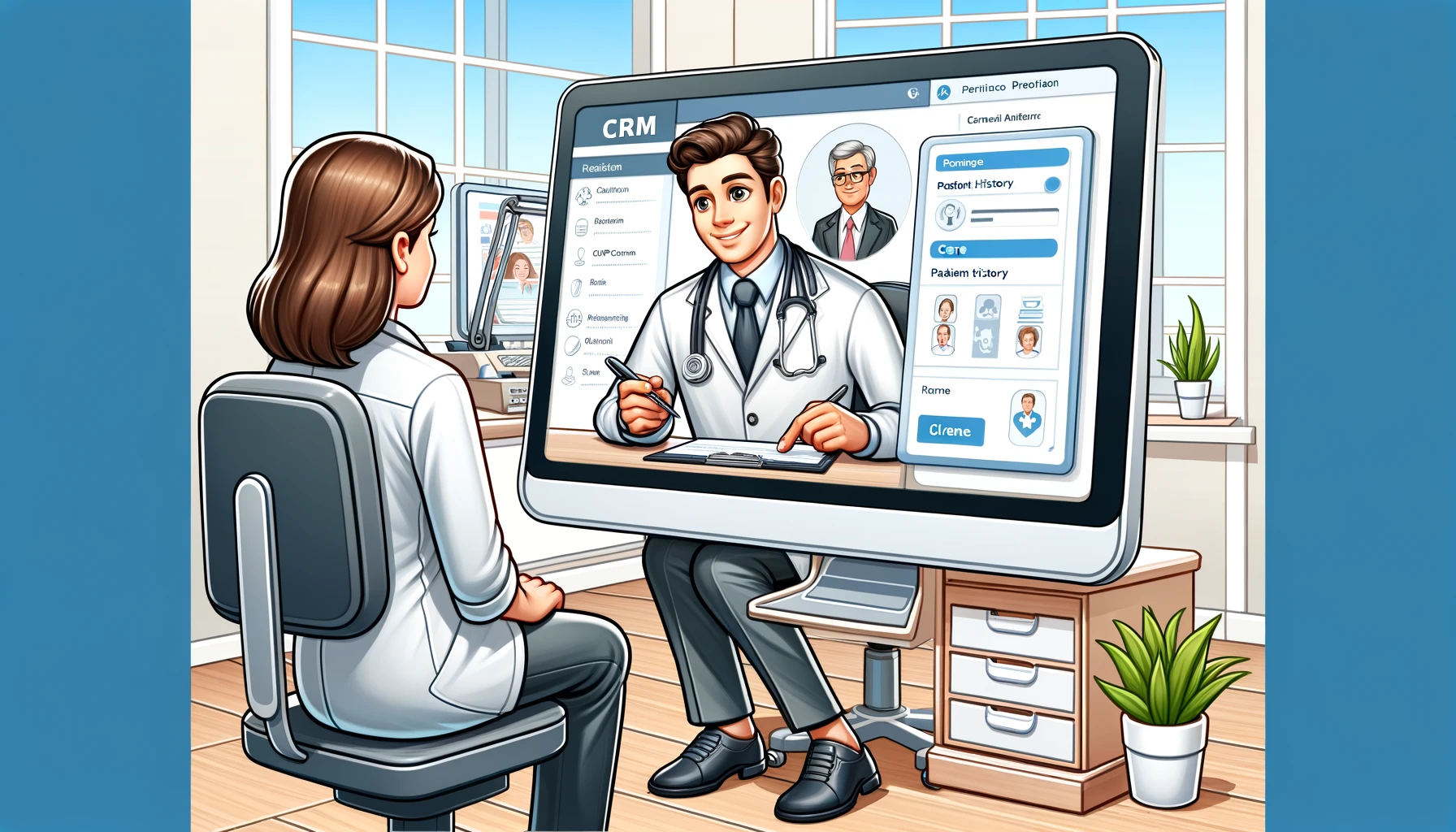
So, the role of CRM in simplifying business processes is undeniably significant. It not only enhances efficiency but also improves communication and coordination within a company, leading to a more streamlined and effective client management strategy.
Getting Started: Enhancing Client Management with CRM
Embarking on the journey to enhance your client management with CRM requires a comprehensive understanding of the system’s capabilities and how they align with your business needs. Here’s a step-by-step guide to help you get started.
Firstly, identify your client management needs. Are you looking to streamline communication, automate routine tasks, or gain insights into your clients’ behavior? Once you’ve identified your needs, you can effectively select a CRM system that best suits them.
Next, get your team on board. Effective use of a CRM system requires team effort. Ensure that your team understands the benefits of the system and how it can simplify their tasks. Provide adequate training to ensure they can effectively use the software.
Then, start with the implementation. Import your existing client data into the CRM system and start automating your routine tasks. Monitor the system regularly to ensure it’s functioning as expected.
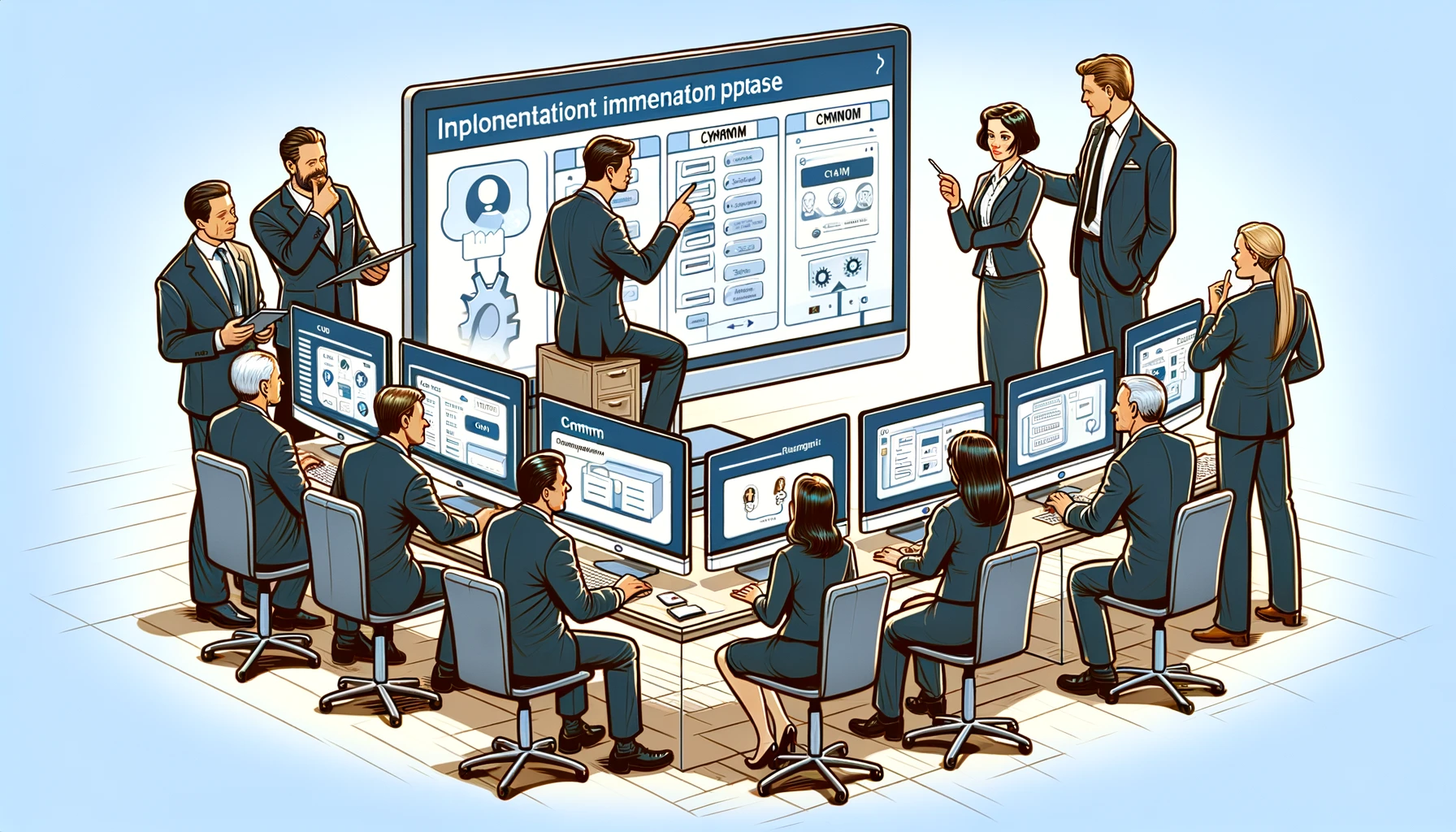
Finally, don’t forget to regularly review and update your CRM strategies. The business environment is dynamic and your CRM strategies should evolve accordingly.
- Review: Regularly review your CRM strategies to ensure they are still aligned with your business goals.
- Update: Make necessary updates to your strategies based on the insights you gain from your CRM analytics.
- Evolve: As your business grows, your client management needs may change. Be flexible and willing to adapt your new CRM strategies accordingly.
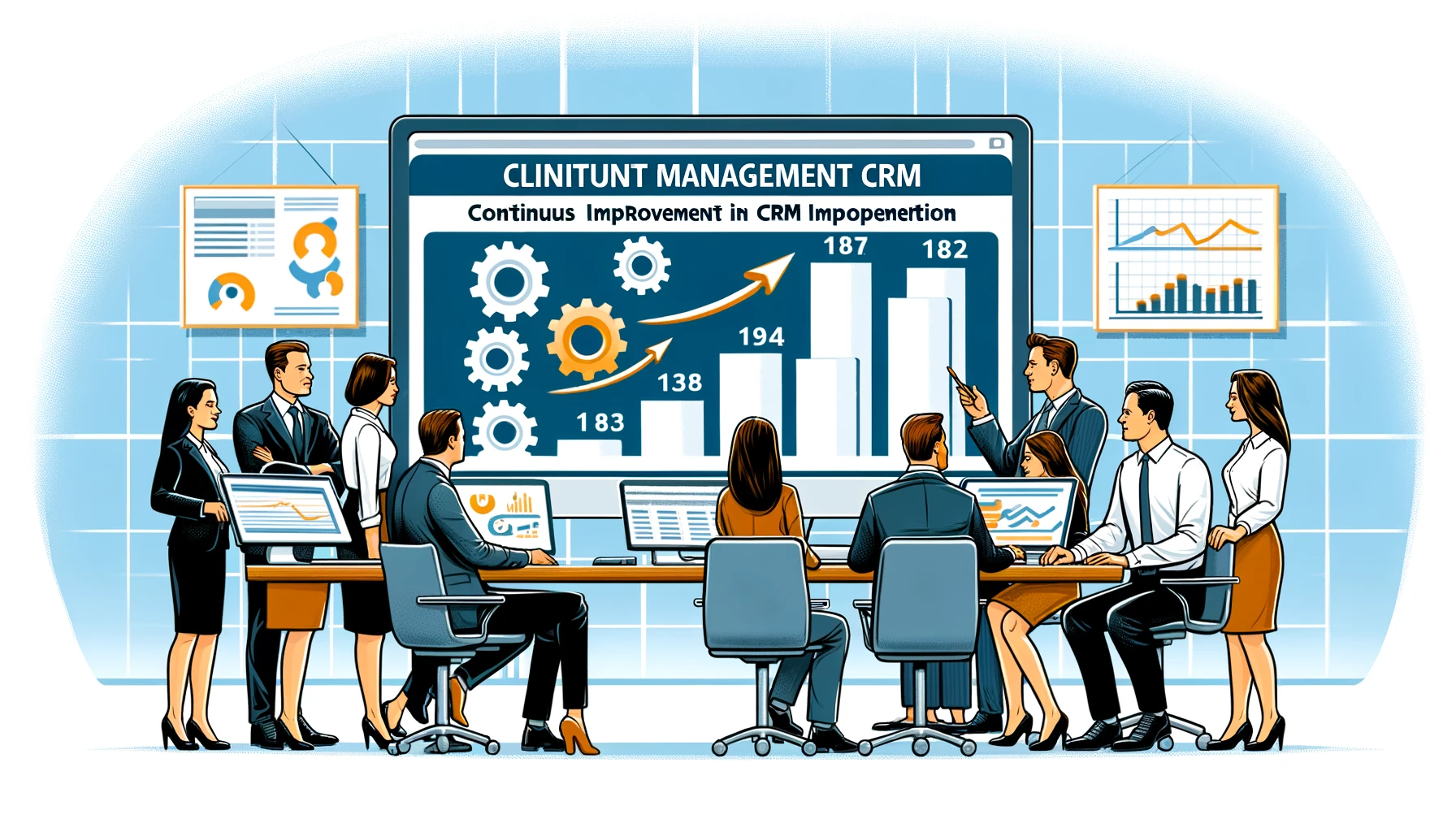
Enhancing client management with CRM is not just about implementing the software. It’s about understanding your needs, getting your team on board, and continuously reviewing and updating your strategies. By doing so, you’ll be well on your way to transforming your client management, making it more efficient and effective.
FAQs
-
What is the Meaning of Client Management? Client management refers to the process of managing and maintaining relationships with clients. It encompasses strategies and practices focused on client satisfaction, communication, and long-term engagement, aiming to enhance business growth and client loyalty.
-
How Does Client Management Differ From Customer Service? While client management involves ongoing relationship building and strategic engagement with clients, customer service typically focuses on addressing immediate customer needs and inquiries. Client management is a broader, more relationship-focused approach.
-
What are the Key Benefits of Effective Client Management? Effective client management leads to increased client satisfaction, long-term business relationships, improved client retention, and potentially more business opportunities through referrals. It’s essential for sustainable business growth.
-
Can Client Management Strategies Integrate with CRM Systems? Yes, client management strategies can integrate with Customer Relationship Management (CRM) systems. CRM systems provide tools for tracking interactions, managing client data, and automating communication, thereby enhancing overall client management.
-
How Does Client Management Influence Business Decisions? Client management provides insights into client needs and preferences, which can guide business decisions. Understanding client feedback and behavior helps in tailoring services or products, thus driving business growth and innovation.
Read more about low-code platform ozma.io
CRM for Beginners: Easy to Start!
CRM for Photographers: More Clients and Efficiency





